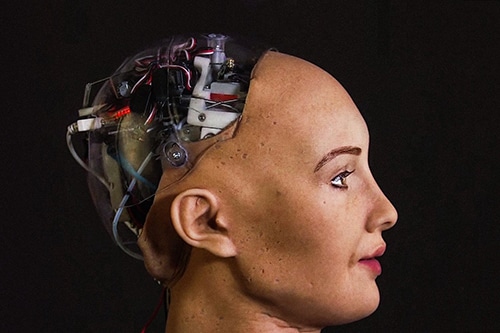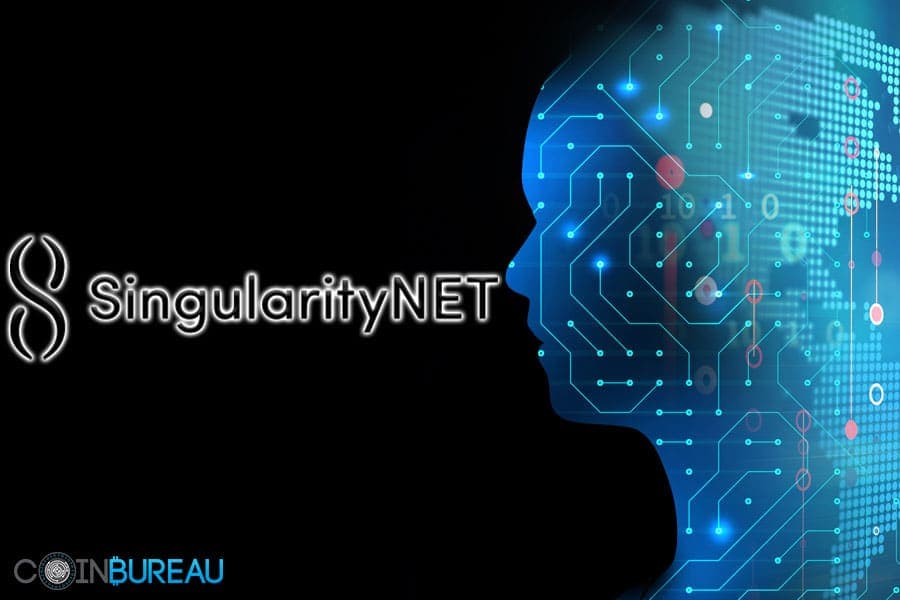The concept of an Initial Coin Offering has come about as a result of the increased popularity of cryptocurrency. Today, an artificial intelligence startup is making use of the ICO funding tactic as a path to gathering the funds needed to officially begin the advancement of their undertaking, SingularityNET. Said undertaking is gathering lots of attention, but why? There are several reasons, actually.
The plan is to produce an AI platform on the blockchain, with the platform being available for distribution. Each blockchain node in the platform would server as back up an AI algorithm. AI experts or programmers would have the ability to make their AI products accessible to SingularityNET end users, which would purchase the services using specific types of network crypto-tokens.
Decentralised AI
SingularityNET aspires to not allow advanced AI to be controlled by interested parties in the Silicon Valley. As an alternative, it will utilize AI blockchain technologies to spread access to a broad range of AI algorithms, even making it possible for them to learn ways to work together. Both businesses and individual programmers will have the ability to host their algorithms directly on the network, and individuals can then use SingularityNET-specific funds to use them, owing to smart contracts.
To begin with, the goal is to create a system that offers exposure and a payment solution to third-party developers of AI products. As a purchaser, you would be obtaining the AI from virtually anyone, whether that is a large tech company or a single programmer. It’s anticipated that SingularityNET will be offering reasonably basic AI algorithms, such as computer vision systems and translation solutions.
For many, there are hopes that this style of platform could make it possible for these capabilities to become connected. For instance, if a customer wished to translate a document that contains images, SingularityNET could make it possible for the translation algorithm to obtain the services of the computer vision protocol, to assess the photo and provide a caption, without any human involvement.
AI Code Collaberation
 Ben Goertzel, an AI researcher based in Hong Kong, is heading the AI push. Goertzel is currently the Chief Scientist of Hanson Robotics, a company which specializes in creating humanoid robots. During the last couple of years, Goertzel has grown disenchanted with the level of AI power that has fallen into the hands of a number of Silicon Valley titans.
Ben Goertzel, an AI researcher based in Hong Kong, is heading the AI push. Goertzel is currently the Chief Scientist of Hanson Robotics, a company which specializes in creating humanoid robots. During the last couple of years, Goertzel has grown disenchanted with the level of AI power that has fallen into the hands of a number of Silicon Valley titans.
Goertzel’s opinion is based on the possibility that those corporations could possibly teach their AIs to discover new means of generating more money for their makers. For example, they could work on refining targeted advertising and marketing, instead of using their ability to take on more serious problems such as climate change. AI research that is funded by the government could also cause problem, as the AI could be controlled by potent lobbyists or bureaucrats serving self-interests.
The issue lies in the fact that thanks to the smart contract process, AI agents are able to communicate with each other, and even work together when required. As an example, a translation program seeing a photograph while translating a document could immediately ask and compensate a computer vision program to add a caption the photo. Goertzel has hopes that over time, these recurring synergies will grow to become something even more sophisticated.
Another High Value ICO
ICOs have become a popular fundraising undertaking among startups, primarily due to the fact that being unregulated works to attract a large number of novice investors. This results in what appears to be a forming bubble. This type of description is to some extent rationalized by the simplicity and speed with which large amounts of funds have been raised. As an example, cloud sharing platform Filecoin collected $232 million in cryptocurrency in during their ICO this past Month.
These fund raising efforts are reaching the mainstream thanks in part to the backing of major celebrities. However, a number of governments, such as China and South Korea, have banned them. In the United States, the US Securities and Exchange Commission (SEC) has issued a warning which stated that some ICOs could in fact be breaking the country's securities laws. Even so, there are no reports of such laws being enforced and there is currently no ICO bans in the U.S.
ICO Allocation
SingularityNET has plans to sell 50 percent of its entire token trove, and then will disperse the remaining half to its employees and to a charitable foundation that will reinvest them into other AI initiatives. The sale could offer appeal even to major technology corporations, but that remains to be seen. The project will launch in 2018, while the ICO will take place next month.
At the core, the goal is to promote the breakthrough of human-level artificial intelligence by way of a decentralized platform. If this goal is achieved, it would block governments and technology giants who are attempting to create general AI in their discreet data centers. Having said that, it is important to note that the current AI are plans are really designed for the long-term, as it will take some time for the system to reach that level of complexity.



